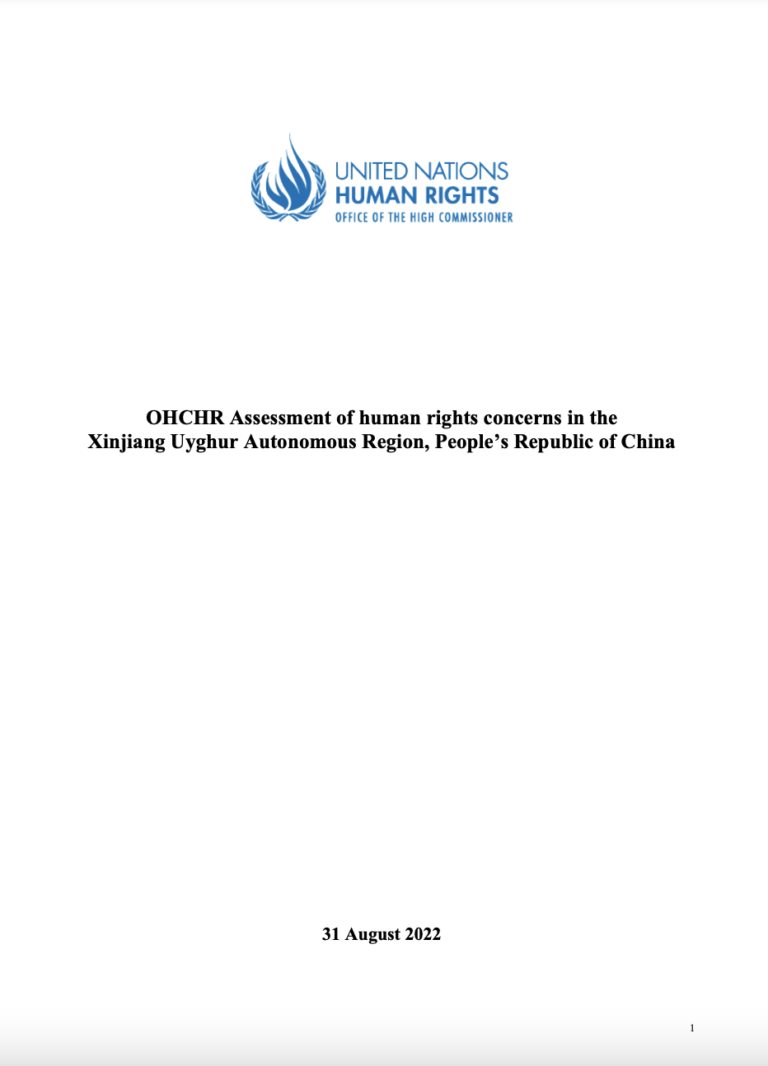In late 2017, the Office of the UN High Commissioner for Human Rights (OHCHR) began receiving increasing allegations by various civil society groups that members of the Uyghur and other predominantly Muslim ethnic minority communities were missing or had disappeared in the Xinjiang Uyghur Autonomous Region of the People’s Republic of China (hereafter “XUAR” and “China”). In 2018, the UN Working Group on Enforced or Involuntary Disappearances reported a “dramatic” increase in cases from XUAR “with the introduction of “re-education” camps in the Xinjiang Uighur Autonomous Region by the Government of China”. Numerous research and investigative reports published since that time by a diverse range of non-governmental organizations, think-tanks and media outlets – as well as public accounts by victims – have alleged arbitrary detention on a broad scale in so-called “camps”, as well as claims of torture and other ill-treatment, including sexual violence, and forced labour, among others.
2. During its review of China’s periodic report in August 2018, the UN Committee on the Elimination of Racial Discrimination expressed alarm over numerous reports of the detention of large numbers of ethnic Uyghurs and other Muslim minorities, under the pretext of countering religious extremism in XUAR. The Government stated that “vocational training centres exist for people who had committed “minor offences.” In subsequent policy papers, the Government has presented such centres as part of its strategies to counter terrorism and to prevent or counter “extremism” in XUAR, while at the same time contributing to development, job creation and poverty alleviation in the region.

